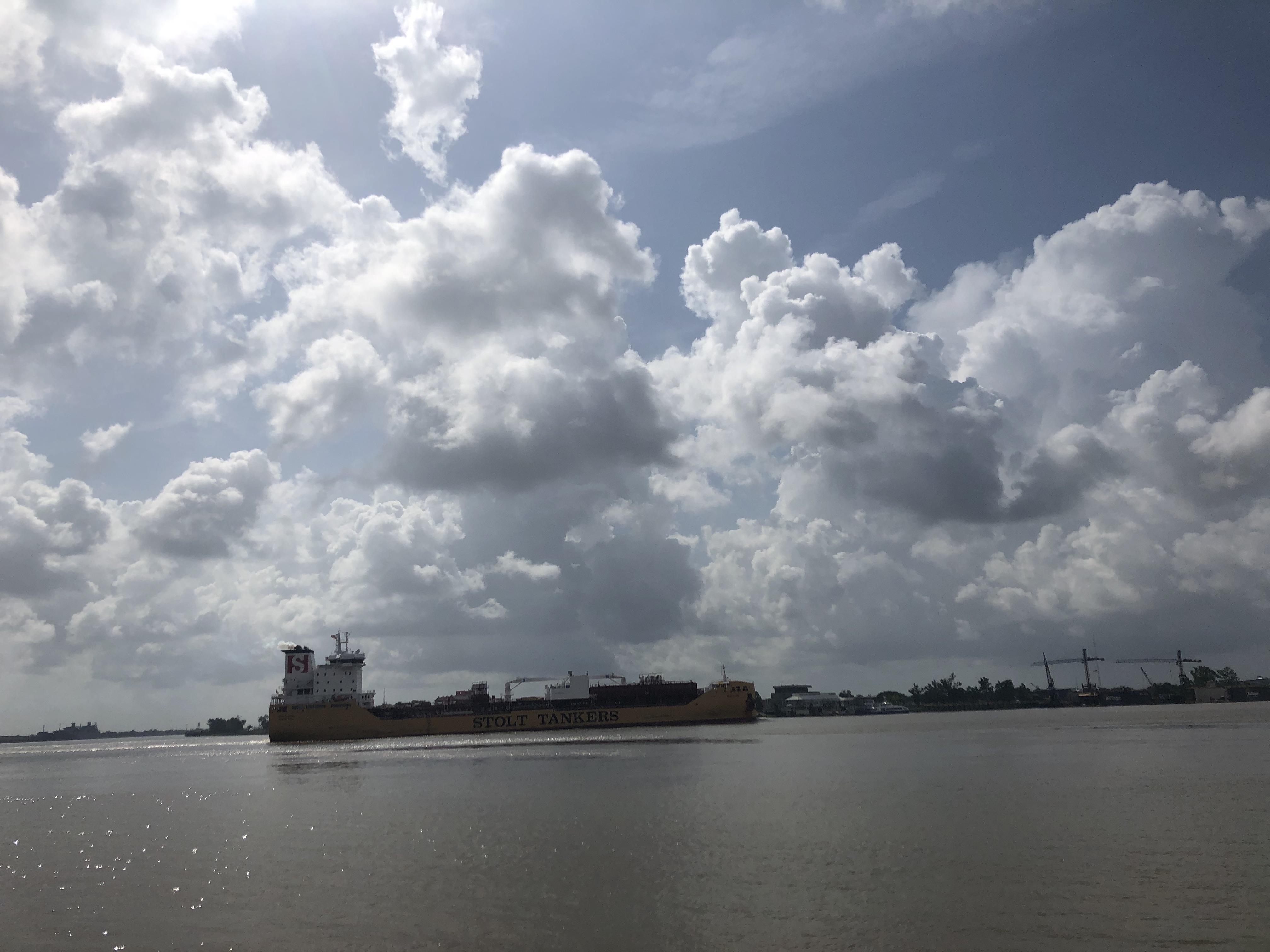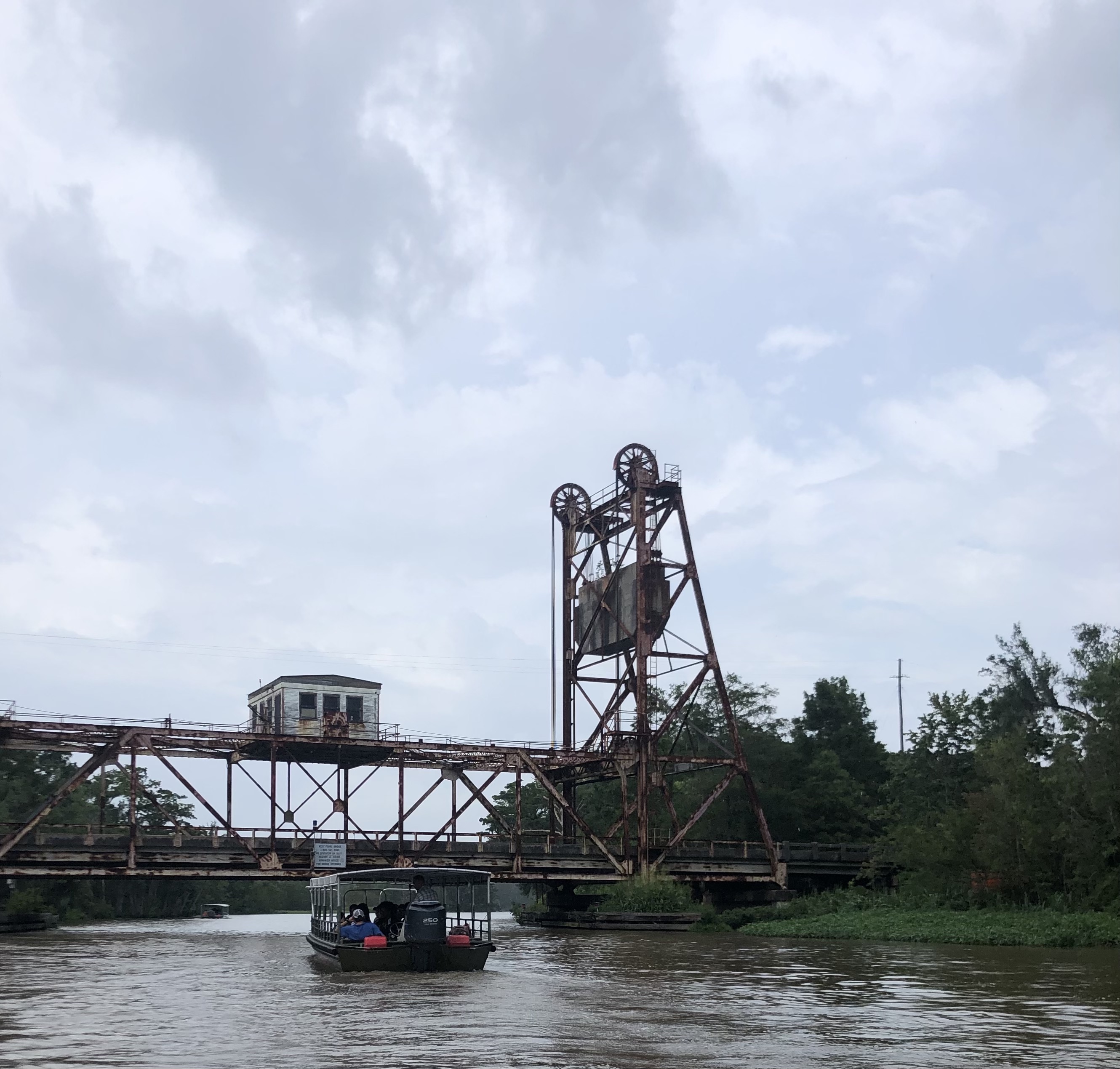Project July 30, 2021
Big Oil's Big History: Black and Indigenous Climate Histories and Futures on the Louisiana Coast
Country:

Indigenous genocide and Black enslavement are part and parcel to the creation of the United States. Human-made climate change, one of the many consequences of white supremacist development, continues to put Black and Indigenous communities at risk to this day. In southern Louisiana, this legacy is all too real. The petrochemical industry’s hold on the state’s economy and government has outsized implications for Black and Indigenous communities.
In the reporting for “Big Oil’s Big History,” Vázquez surveys both the past and the future of the Louisiana coast. One piece takes a deep historical dive into the violence that has governed land on the Louisiana coast from Indigenous dispossession, to the building of sugarcane plantations that used enslaved labor, to the creation of oil refineries. In another, Vázquez profiles organizers combating oil’s impact—increasing and more intense hurricanes, coastal erosion, hotter temperatures, all caused by climate change—and how coalition building with a mind towards the historical impacts their work and creates new horizons for their activism.


